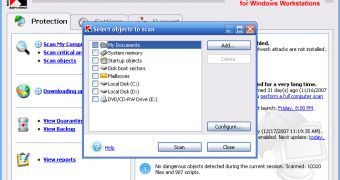We've seen this in the past, but it appears that there's a new trend among today's Trojan horses: Windows infections that monitor the Internet activity and display desktop pop-up windows related to the websites loaded by the user. This is not so dangerous, but it might be annoying like a baby crying at 6 o'clock in the morning. Security company Trend Micro wrote that TROJ_CLICKER.SM affected all the Windows editions, except the 95 release when only a few viruses could harm the data.
Sure, the Trojan horse has a low damage potential, a low distribution potential and a low overall risk rating, but what if you visit a news website? You get more news. What if you visit a job page? You get more job offerings. And what if you visit a pornographic website (please don't blush!)? You get more porn. Simple as that!
And all this happens through pop-up advertisements displayed when the user loads certain websites containing specific strings. 'But how can I get infected?' you may ask. Well, there's no clear answer to that question, but it seems like the biggest threat is represented by the malicious websites that attempt to deploy the Trojan without users' approval. In addition, it may be dropped by another malware infection already installed on your system.
'How can we know if we're infected or not?' another question asks. Again, there's no 100 percent clear answer, but you may discover that something weird is happening with your computer when all sorts of pop-up windows are opened while browsing the web. And if you click that big 'X' button to close them, they refuse to disappear. Moreover, many others might be opened.
"It connects to certain Web sites to download possibly malicious files. It also monitors Internet activities on the affected system and checks the title bar of the Internet browser for certain strings. Once it detects the presence of any of the said strings, it opens advertisement-related Web sites and displays pop-up windows on the affected system", Trend Micro wrote.

 14 DAY TRIAL //
14 DAY TRIAL //